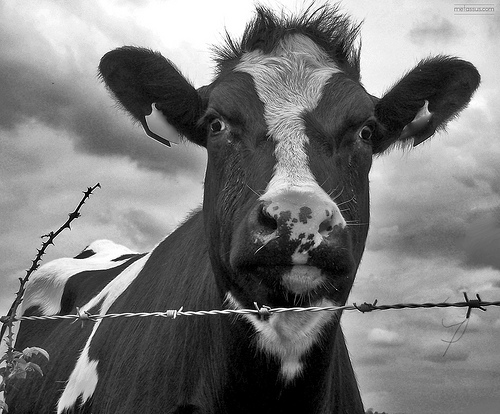
An alternative fuel source is cooking that could change the nation. Its official name is biogas technology, but it is more affectionately referred to as “Cow Power.”
Here’s how it works: manure and other organic wastes are fed into anaerobic digesters – a technology that converts methane into clean, renewable energy – to produce biogas. This gas fuels a generator, and voila! … Electricity, which can then be distributed through the electrical grid. Alternatively, the natural gas can be fed into pipe systems for fuel.
According to the U.S. Department of Energy’s Alternative Fuels Data Center, more than half of Sweden’s 11,500 natural gas vehicles are fueled on biogas. And both Germany and Austria are working towards a goal of 20 percent biogas in all natural gas used to fuel vehicles.
While biogas technology has been slower to take hold here in the United States, biogas energy projects are rapidly popping up in states such as Vermont, Wisconsin, and New York. Some 80 percent of the estimated 160 biogas energy projects in the U.S. are currently installed on dairy farms, which then combust the gas to generate electricity. The combined installed capacity of all dairy farm projects is nearly 60 Mega Watts.
This represents only a fraction of the estimated 8,000 farms across the nation that could support some method of biogas energy production. It is estimated that the total electrical capacity of all these farms could range as high as 1,600 MW, or about 10 percent of the nation’s current electricity needs.
Not convinced? Check out the new documentary Cow Power, which highlights the history and science behind the Green Mountain Power Cow Power project; one of the first utilities in Vermont that generates electricity created from cow manure.
The GMP Cow Power energy initiative provides grants and technical support to local Vermont dairy farmers who choose to install anaerobic methane digesters on their farms in an effort to reduce electricity costs and carbon footprints. It is one example of many similar projects scattered throughout the country that seek to marry good economics with healthy, and sustainable communities.
And, while “Cowpower” isn’t currently available to power our lives here in Baltimore, we can still get a piece of the action, power-up and become the envy of our neighbors with a DIY methane converter. It seems to me that this simple, small-scale solution could be used throughout Baltimore to help create resilient, healthy and sustainable neighborhoods.
[youtube http://www.youtube.com/watch?v=3AZv6MjZylo?feature=player_detailpage&w=640&h=360]
